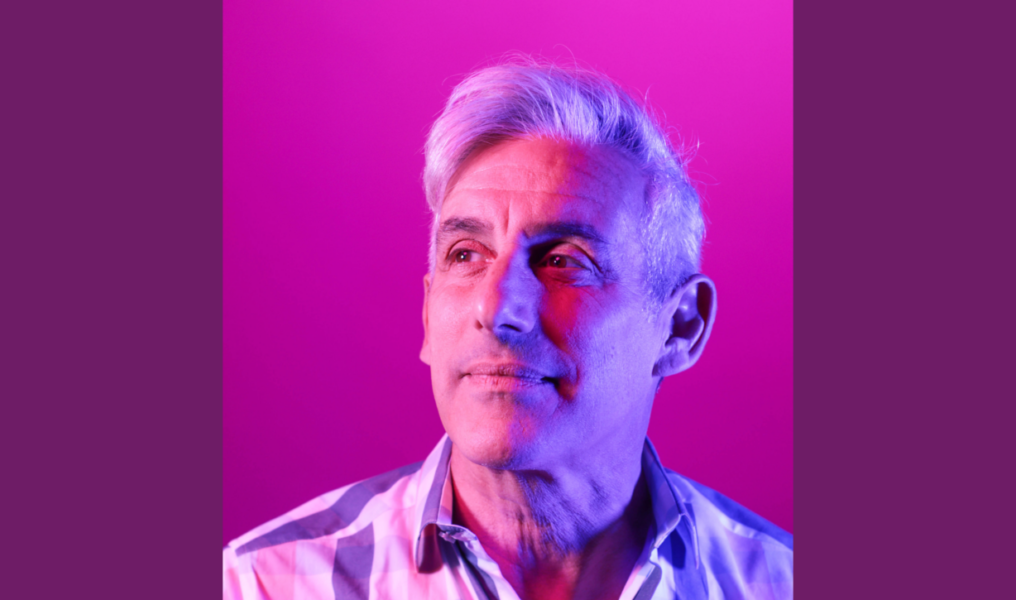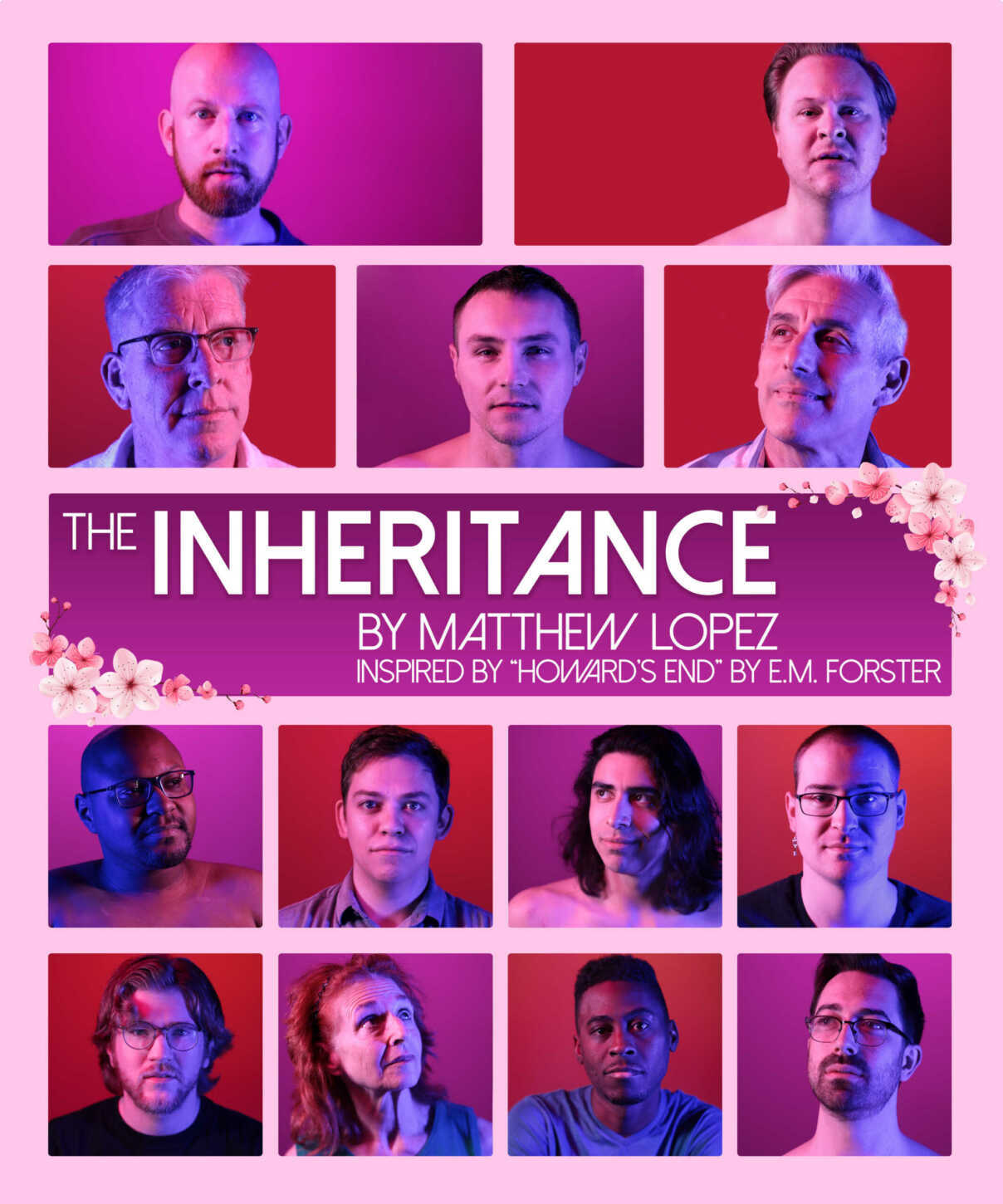LGBTQ+ Advocate Jay Kaplan Set to Perform Onstage in Michigan Premiere of 'The Inheritance' at The Ringwald
ACLU lawyer on his long theater career

By day, he is best known in Michigan’s queer circles as a tireless advocate for the community and the staff attorney for the ACLU of Michigan’s LGBT Project. But by night — or a few weekends at least — Jay Kaplan will be acting his heart out on the Ringwald Theatre’s stage in “The Inheritance,” set to debut May 5.
The play, a modern-day reimagining of E.M. Forster’s novel “Howards End,” which was adapted into a film in 1992, focuses on how different classes of people interact with one another. In the stage version, which hit Broadway in 2019, writer Matthew Lopez tackles that same subject matter except with different generations of gay men living in New York City instead of straight characters. The play won four Tony Awards in 2021, including Best Play.
The Ringwald will perform the ambitious six-hour show in its two parts. Kaplan plays two roles in the show: Morgan, who represents Forster in the show, and Walter Poole, who cared for dying men during the AIDS crisis.
“The significance of this play is it’s kind of an epic undertaking, a take on two different plays that look at gay men from the past and in the present and look at how our stories are intertwined,” Kaplan told Pride Source.
The theater has long been in Kaplan’s blood — he’s been interested in acting as far back as elementary school at Northbrook Elementary in Southfield. Kaplan has been an actor and director with the Birmingham Village Player for more than 20 years. Earlier this year, he directed a production of “Harold & Maude: An Intimate Musical” with the troupe. He’s also known around town for his cabaret performances.
Recently, Kaplan spoke with Pride Source about “The Inheritance,” his passion for acting and LGBTQ+ advocacy, and how he maintains a healthy work-personal life balance.
You have quite the theatrical resume.
I’ve done a lot of community theater. Recently, I’ve mostly been directing shows. I haven’t actually been in a play for quite some time. It’s been a good 15 to 20 years.
What was your first production?
It was in elementary school. My first role was Hansel in “Hansel and Gretel” in the second grade. It was that long ago.
Who did you inherit your artistic ability from?
I have no idea. I don’t think my family would say I inherited anything. I’ve just always been interested. It was a way to get out of my own shell and feel less self-conscious by playing somebody else.
Shortly after I came out in 1989, I was instructed to read Forster's “Maurice” by my gay mentor. It was one of the first books with gay characters or a gay storyline that I had ever read. What was your introduction to Forster?
I never read “Maurice,” but I remember when that movie came out. It’s spoken about in the play. He wrote it, but didn’t let it be published for many years. He didn’t want to be known as a gay writer. But later, he wished he hadn’t done that. He realized how important it was for people to read this book.
So that’s one of his regrets, that he didn’t make them publish the book earlier. He lived to 1970 and he waited like 50 years to have the book published. But he felt very strongly about depicting a healthy same-sex relationship involving two men. It didn’t have an unhappy ending the way that gay relationships were portrayed in the media and in society at that time.
Had you read “Howards End” or seen the film before you started work on the production?
I bought the book “Howards End,” and I didn’t read it. I had seen the first part of the play. It’s two parts, Part One and Part Two, and I thought it was wonderful. It’s really all about how our stories are connected to each other from generation to generation and how important it is in the LGBTQ+ community to share our stories. I was really taken by that message.
As someone who’s a tireless activist for the ACLU, what does having a creative outlet like the theater mean to you?
When you do work with regards to civil rights or social justice, it’s so important to have a work-life balance or to have an outlet, [especially] when you watch the news and see the attacks on trans people and efforts of book banning.

This play is an ambitious undertaking for a community theater. What has it been like to bring this six-hour show to the stage? And to do it with a bunch of other queer community members — how did that feel?
This a big undertaking to present both of these plays, but our director Joe Bailey’s passion for this play and the message that it conveys has been contagious. I think everybody in the show recognizes how special this play is, how rich the characters and their stories are, and how this play has special significance for the LGBTQ+ community — our history and the legacy and contributions of so many gay men. The cast and the crew for the show are diverse. Many identify as queer and some are straight allies who wanted to be part of this production of this beautiful play and what the playwright has to say.
What’s been your experience rehearsing for this play and remembering your many lines?
The task of memorizing so many lines has been a daunting one, but seeing how everybody in the cast, including those who have more to say in the play than myself, dug in and learned their lines, provided a great incentive for me to try to meet that challenge. I’ve been pleasantly surprised so far how much my brain has been able to retain and I really do believe that exercising the brain this way may help stave off future memory loss. Or as I’ve said not so delicately: dementia! [Laughs.]
Finally, why do you think people should see “The Inheritance” at The Ringwald?
It’s the Michigan premiere of this play. It’s really an epic look at a particular gay community over generations and the importance of how we relate to each other. We lost a generation from AIDS. A certain age group that had their stories to tell.
I think as we’re coming up on Pride Month, the importance of knowing those stories is clear. They, living their lives and the things that they did, certainly have made things better for new generations, and it’s important that we share those stories and be aware of them. So I think it’s the perfect play to attend during Pride Month. In addition to celebrating ourselves and being our authentic selves, it’s a look at how far we’ve come.
Part One of “The Inheritance” will open on May 5 and play exclusively for two weekends, at which point Part Two opens on May 19 and plays through May 22. Then both parts will play in repertory from May 26 through June 11 with Part One playing Friday nights at 8 p.m., Part Two playing on Saturday nights at 8 p.m., and both parts playing on Sunday (May 28, June 3 and June 10) with Part One at 2 p.m, and Part Two at 7 p.m. More info at theringwald.com.











